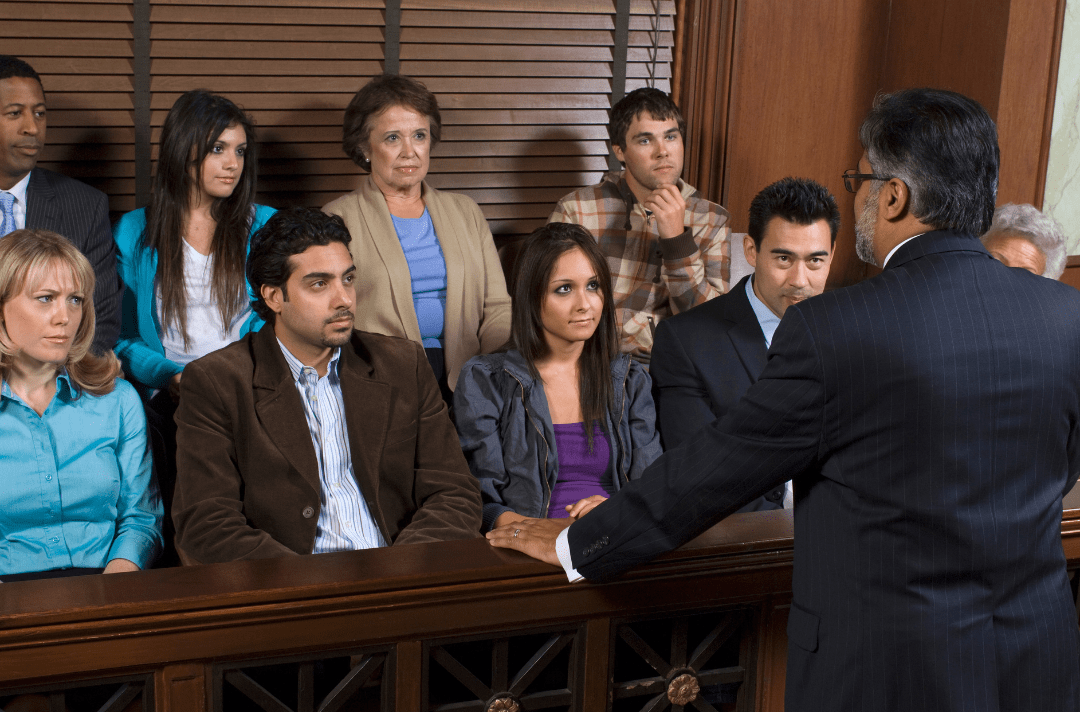Request Your PDF Copy Here
Should You Testify at Trial?
6 Factors to Consider for Your Criminal Trial Defense
No person “shall be compelled in any criminal case to be a witness against himself.” This is the Fifth Amendment privilege against self-incrimination. It means that you cannot be forced to take the witness stand during your criminal trial; instead, you may choose to remain silent. Although conventional wisdom suggests that remaining silent is the wise choice in most cases, there are several factors you should consider in deciding whether to testify.
1. Your testimony may bolster your defense.
If you are claiming self-defense, or entrapment, or that you acted in good faith, you may want to testify. These and similar defenses are more likely to carry the day when the defendant testifies. This is especially true if you have a credible explanation for your actions, and you have no prior criminal record.
2. Human nature: Jurors will want to hear from you.
As a general rule, jurors want the accused to take the stand and defend himself. This cuts both ways, however, as jurors tend to view the defendant’s testimony with skepticism, knowing that his liberty is at stake.
3. You are innocent until proven guilty beyond a reasonable doubt.
In every criminal trial, the defendant is presumed innocent, until proven guilty. To put it another way: You do not have to prove your innocence; the prosecution has to prove your guilt, beyond a reasonable doubt. Accordingly, if the prosecution has failed to meet its burden of proof, or your attorney has created a reasonable doubt through his cross-examination of the prosecution’s witnesses, then you should probably remain silent.
4. Your silence cannot be used against you.
The law forbids the prosecutor from commenting on your silence. In addition, the court will instruct the jurors that they may not draw any negative inferences(including an inference of guilt) from your silence.
5. Cross-examination is not for the faint of heart.
While there are few certainties in a criminal trial, you can be certain that the prosecutor will go after you on cross-examination. He will use every tactic available to him to undermine your credibility and poke holes in your testimony. It is the rare defendant who can withstand this type of grueling questioning.
6. Your testimony may overshadow other evidence in the case.
If you choose to testify, your testimony (and your credibility) will be the trial’s main event. If the jury does not believe you, they will convict you, regardless of the weaknesses in the prosecution’s case; or the strength of other evidence presented in the case; or the judge’s instructions about reasonable doubt.
In deciding whether to testify in your criminal trial, you must carefully weigh the potential benefits and risks. Your testimony could strengthen your defense, offer jurors an authentic perspective, and reinforce your claims of innocence. However, the dangers of cross-examination, the burden of juror scrutiny, and the possible overshadowing of other evidence make this decision a pivotal one. Consulting with a seasoned criminal law firm like Future First can help you assess these factors and craft a strategic approach tailored to your unique case. If you’re facing this critical choice, reach out to our legal team for a free phone consultation to understand how to best protect your rights and your future.


